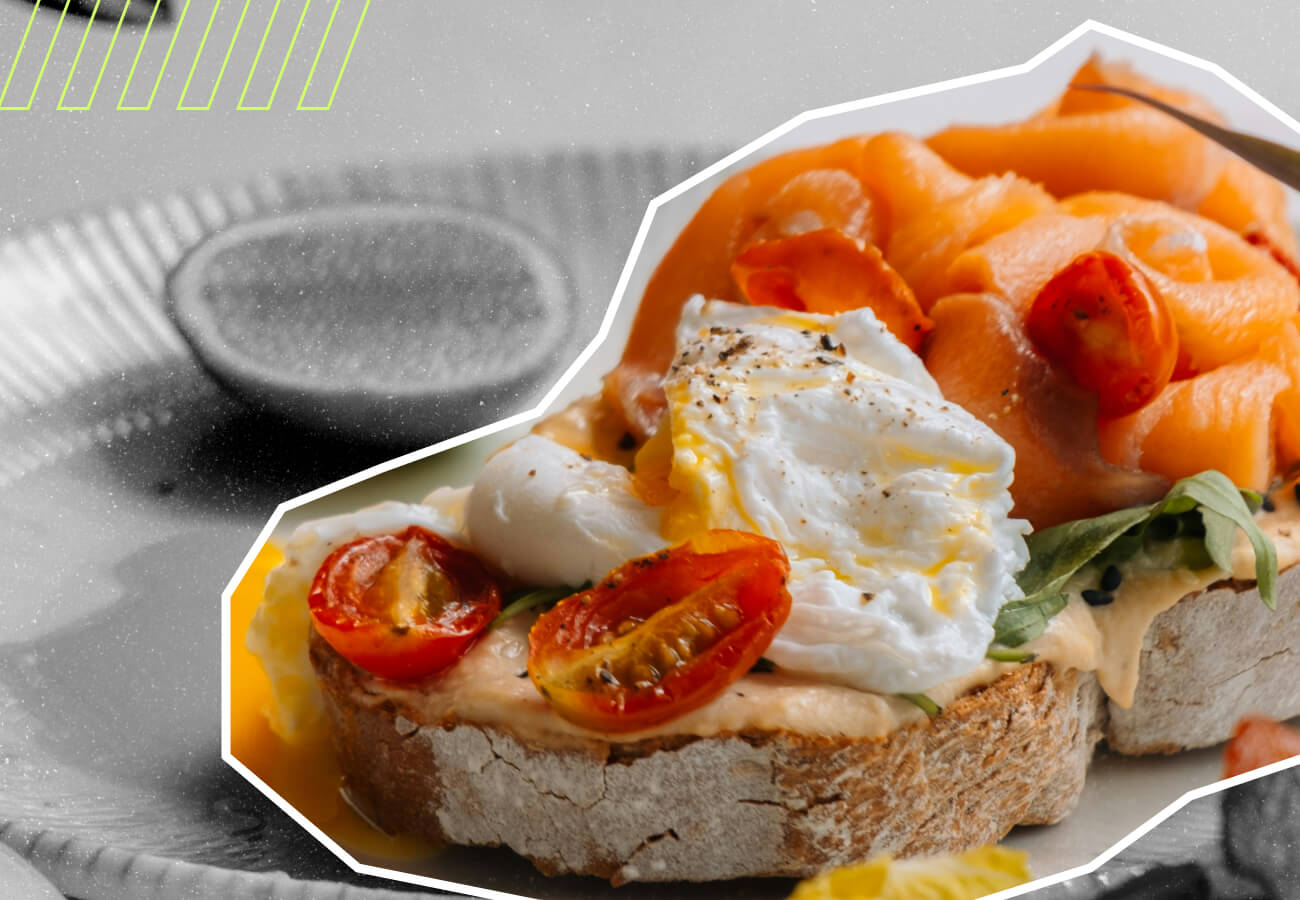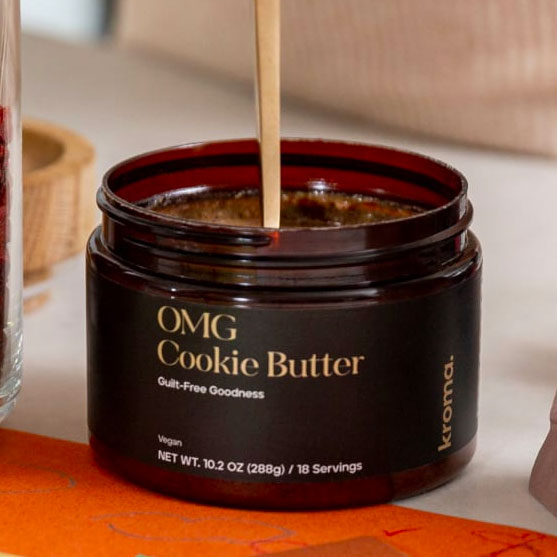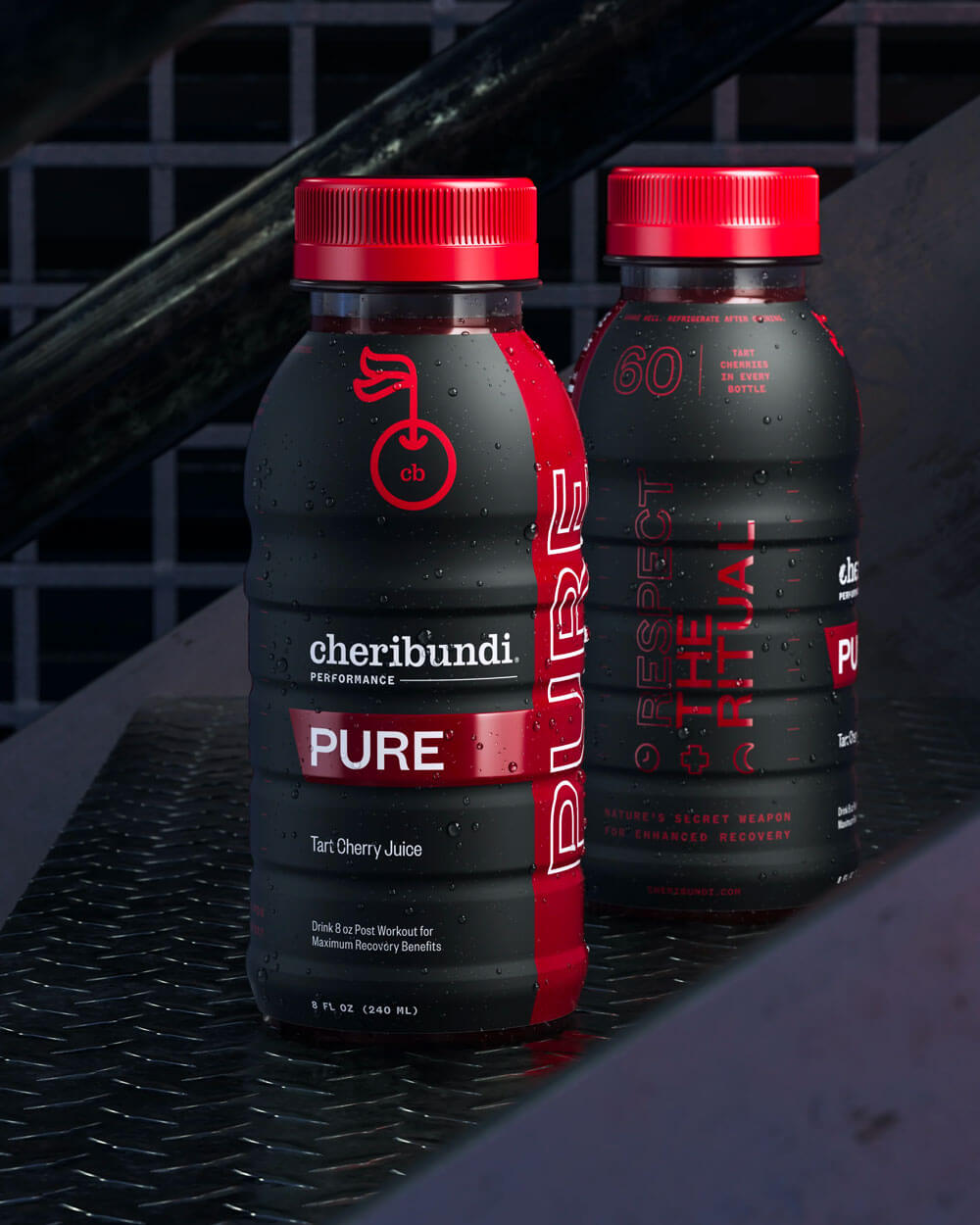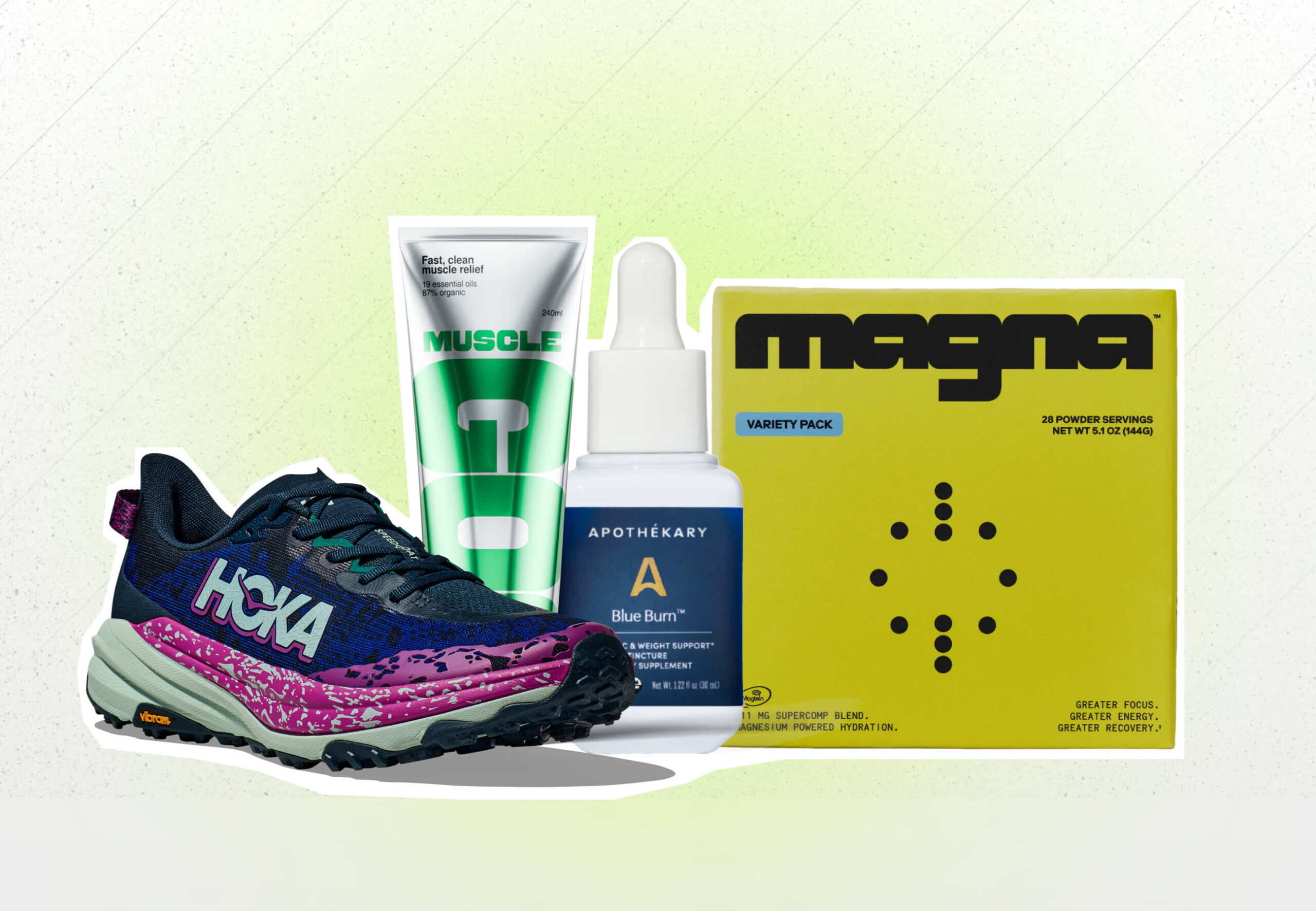10 Nutritionist-approved muscle recovery foods

Diet and exercise often go hand-in-hand, but optimizing our post-workout fuel for muscle recovery isn’t always top of mind. Choosing nutritious foods is one thing, but maximizing your ability to bounce back from a workout is a whole other game.
And yes, hydration and electrolytes play a critical role in recovery — but they’re only half the battle. Put simply, if you want to build muscle and get back at it tomorrow, you’ve got to feed your body right today.
So what exactly do your muscles crave after you’ve put them to work? A nice balance of protein, carbs, and fat.
Let’s get into the nitty-gritty.
How do foods help muscle recovery?
Exercise recovery is just as crucial as exercise itself. While you’re getting your workout on, it’s all-systems-go inside your body. Your blood starts pumping, your heart rate goes up, your muscles activate, and nutrients start flowing to keep the momentum going. And while all of this activity is beneficial – it doesn’t come without a price.
Sarah Wragge, Nutrition Advisor to Kroma, explains: “Although exercise is incredible for the body, it increases stress hormones and promotes inflammation, especially with longer, higher intensity workouts. Thus, it is essential to increase our antioxidant intake to mitigate inflammation, ensure proper protein intake for repairing and rebuilding muscles, and consume adequate amounts of carbohydrates to restore glycogen stores in our muscles.”
While you’re working out, you slowly deplete your body of vital nutrients, your muscles go through a natural process of wear and tear, and inflammatory and oxidative stress pathways become active. To get things back to the status quo, you’ve got to refuel your body with the precise nutrients it’s craving.
“Understanding the relationship between post-workout nourishment and muscle repair is not merely advantageous but indispensable for achieving optimal results,” says Tom Smalley, MS, CSCS, and coach at Volt.
As previously mentioned, the optimal post-workout nutrition includes a balance of fat, protein, carbs, and antioxidants. Let’s take a look at each in more detail.
What to look for in muscle recovery foods
Protein
Right off the bat, when you think of muscle recovery, protein should be the first nutrient that comes to mind. Protein is made up of amino acids, which serve as building blocks for muscle tissue. As your muscles go through wear and tear with each workout, amino acids repair the tissues and ultimately make them stronger.
Sarah Wragge explains: “We break down muscle tissue during exercise. More protein is required to promote tissue repair. We recommend about one gram of protein per pound of body weight.”
Therefore, your post-workout meal should emphasize protein to provide your muscles with the amino acids they need for optimal recovery and repair.
Carbohydrates
Replenishing your carbohydrate stores is essential for optional recovery. While you exercise, glycogen (stored glucose) fuels your muscles to keep you moving. In fact, you may know the feeling of “hitting a wall” when your glycogen stores start to dwindle.
“For moderate-intensity training sessions, aim for meals and snacks with a carbohydrate: protein ratio of 3:1. For vigorous-intensity training sessions, a 4:1 carbohydrate: protein ratio is recommended,’ advises Michelle Darian, MS, MPH, Registered Dietician to InsideTracker.
You can think of carbs like the gasoline that keeps your car running. After a long drive, you’ll want to fill that gas tank back up so you can get up and take it for a ride tomorrow. The difference, however, is that for the human body you also need that “gasoline” to help you recover from a long drive (or in this case, workout), which makes it twice as important to refuel properly.
Tom Smalley shares, “Opting for complex carbohydrates with a low glycemic index helps stabilize blood sugar levels and sustain energy post-workout. Whole grains such as oats, brown rice, and quinoa offer fiber and essential nutrients in addition to energy, supporting muscle recovery and overall health.”
“My rule of thumb is to consume an easily digestible carb immediately after. I like 3-4 medjool dates or a banana with Kroma’s OMG Cookie Butter,” adds Sarah Wragge.

Healthy Fats
With carbohydrates and protein serving very direct roles in muscle recovery, we can’t forget about our third macronutrient – fat.
While the impact may not be as direct, healthy sources of fat play a critical role in tissue repair, particularly as it pertains to calming inflammation.
“Healthy fats contribute to muscle recovery and overall health, with omega-3 fatty acids possessing anti-inflammatory properties that aid in reducing exercise-induced muscle soreness and inflammation. Foods rich in healthy fats, such as avocados, nuts, seeds, and fatty fish like salmon, provide valuable nutrients for post-workout recovery,” explains Tom Smalley.
Fat is often overlooked as a recovery food, but research shows that in addition to its anti-inflammatory impact, healthy fat sources may play an important role in muscle regeneration.
The best muscle recovery foods
1. Eggs
Eggs are considered the “perfect protein” due to their essential amino acid makeup and high bioavailability (the amino acids are easily absorbed). They’re also pretty easy to whip up, which makes them an ideal post-workout food when you’re short on time.
“The protein in eggs helps repair and rebuild muscle tissue that breaks down during exercise. Eggs have about 6 grams of protein each. Pair an egg with a slice of bread and a vegetable post-exercise,” says Michelle Darian.
2. Salmon
Salmon contains a hefty dose of protein and is rich in omega-3 fatty acids – the kind that can help your body fight post-workout inflammation. With protein and fat covered, you’ll just want to pair your salmon with some form of carbohydrate for a complete meal.
“Pair a medium-sized salmon filet (about 6 oz) with brown rice, asparagus, and corn,” recommends Michelle Darian.
3. Sweet potatoes
After your workout, your muscles crave carbs to replenish their glycogen stores. “The carbs in sweet potatoes help fuel and energize muscles. Make a sweet potato grain bowl with brown rice, black beans, and vegetables,” explains Michelle Darian
Sweet potatoes offer a complex source of carbohydrates that’s also lower on the glycemic index than other types of potatoes. They’re also easy to mix and match with protein sources, making them a versatile option.
4. Spinach
Greens are loaded with vitamins and minerals, and they also contain antioxidants. Spinach, in particular, provides magnesium, which plays an important role in muscle function and may help calm muscle cramps. Throw a handful of spinach into a smoothie, use it as a base for a salad, or saute it alongside some eggs.
“Leafy greens like spinach contain antioxidants that can help reduce muscle damage caused by exercise-induced oxidative stress,” adds Michelle Darian.
5. Greek yogurt
“Greek yogurt is an excellent source of carbs and protein,” says Michelle Darian. “It also provides calcium and vitamin D that help with bone density. The probiotics may help decrease post-workout inflammation, too.”
Greek yogurt provides both protein and carbohydrates and is also portable – making it an excellent option if you’re on the go. In addition to its macros, Greek yogurt also provides calcium and vitamin D, which are crucial for bone health. You can dress up your Greek yogurt with berries, granola, nuts, honey, or whatever sounds good.
6. Berries
Berries are packed with nutrients and are particularly high in antioxidants, which may help to reduce inflammation and oxidative stress post-workout. At the same time, due to their carbohydrate content, they can help to replenish your muscle glycogen stores.
Since they’re generally low in protein and fat, you’ll want to pair your berries with other foods like nut butter, yogurt, and eggs or throw them into a protein smoothie.
“Berries like blueberries and strawberries contain antioxidants called flavonoids, which can help reduce inflammation and muscle soreness after strenuous exercise,” explains Michelle Darian.
7. Beetroot
Beetroot holds a special place in post-recovery meals due to its ability to boost your nitric oxide (NO) levels. NO increases blood flow, strengthens muscle contraction, and enhances mitochondrial function – all ideal parameters for an athlete. Beets also contain antioxidants called polyphenols, which may help to reduce your post-workout inflammation and oxidative stress.
“Adding beetroot into your diet can enhance muscle efficiency by reducing the oxygen cost of exercise through the widening of blood vessels, lowering blood pressure, and improving cognitive function,” says Michelle Darian.
Add beets to a salad, or chop them up (cooked) and throw them into a smoothie.
8. Tart cherry
Tart cherry is another unique food you may not think of immediately when considering post-workout fuel, but it’s certainly one worth considering.
According to Michelle Darian, “Much like beetroot, tart cherries can help reduce muscle damage and promote post-workout recovery by increasing vasodilation (the widening of blood vessels) and blood flow. It increases total antioxidative capacity, reducing inflammation and lipid peroxidation to aid in the recovery of muscle function.”

9. Turmeric/Curcumin
Turmeric is a spice that you’ll find in a range of dishes, but it has its roots as a healing herb, used in ancient systems of medicine like Ayurveda and Traditional Chinese Medicine. Curcumin, the primary bioactive compound in turmeric, is known for its anti-inflammatory activity and its role as an antioxidant.
“Several studies have shown that including curcumin during heavy exercise lowered inflammation and the muscle damage blood biomarker creatine kinase. These lower levels of inflammation and creatine kinase were also accompanied by reduced muscle soreness after exercise,”adds Michelle Darian.
10. Chia seeds
If you’re searching for a vegan or vegetarian source of omega-3s, look no further than chia seeds. These little guys are loaded with fiber and packed with vitamins, minerals, and antioxidants.
“Not only are chia seeds full of antioxidants and fiber (just two tablespoons contain 11 grams!), but they’re also brimming with healthy fats to fight inflammation,” explains Michelle Darian.
You can enjoy your chia seeds by sprinkling them on top of a salad, making chia seed pudding, adding them to your smoothie, or mixing them into yogurt or oatmeal.
Refuel with the right foods
Muscle recovery is a key aspect of any fitness routine. Regardless of your overall fitness goals, if you can’t get back at it within a reasonable amount of time, you’ll never be able to optimize your athletic performance.
Refueling with the right foods, like high-quality protein, healthy fats, and complex carbs, not only supports muscle growth but also sets you up for success for your next workout.
This can look like salmon with veggies or grains, Greek yogurt topped with berries, a veggie omelet, or any other combination that sounds good to you. The key is getting these essential nutrients within a reasonable timeframe so your body can get busy supporting muscle protein synthesis and replenishing its energy stores.

 Published on Feb 27, 2024 by
Published on Feb 27, 2024 by 











